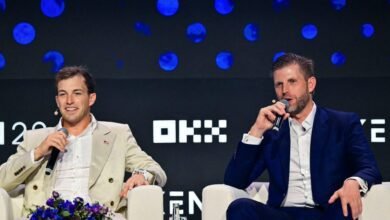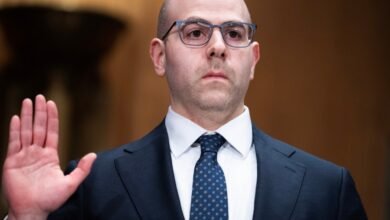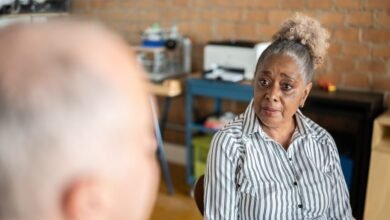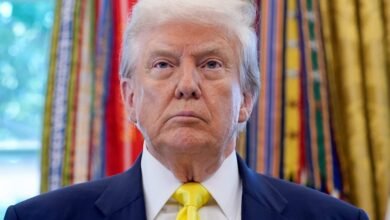Rolls-Royce CEO Tufan Erginbilgiç: ‘You can’t always influence the macro stuff but you influence how you deal with it’
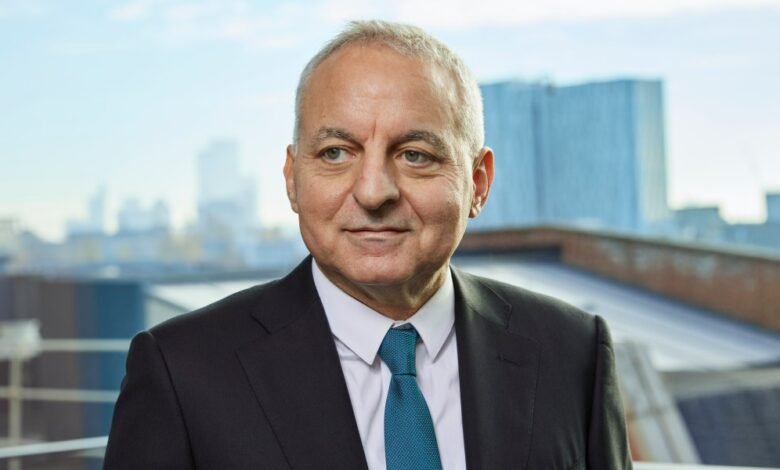
Good morning. I recently spoke with Rolls-Royce CEO Tufan Erginbilgiç about the art and science of transformation. I caught him on a good day, fresh from reporting a 50% jump in half-year profits to £1.7 billion (about $2.3 billion) that’s helped the U.K. aerospace company’s stock price more than double so far this year.
Erginbilgiç says he’s “changed everything about the company” since becoming CEO in early 2023. He drove 17 initiatives across the organization through four so-called pillars of getting everyone aligned around confronting reality, driving efficiency, setting clear targets and “normalizing intensity” to get things done.
“Underperforming companies stop talking about performing,” he told me. “They stop communicating because it looks ugly. You need to tell them what your vision is to make this a great company … It’s not restructuring I’m after. Transformation is a lot more holistic and ambitious.”
And his response to tariffs, geopolitical challenges and ever-shifting technologies is to focus on making Rolls-Royce more proactive and agile. “You can’t always influence the macro stuff but you influence how you deal with it,” says Erginbilgiç, who created a large task force that reports to him every two weeks.
When trying to align 50,000 people around transformation, his advice is not to obsess over the latest AI or budget target. “Nobody gets excited about budgets,” he says. “Tell people what good looks like.”
Contact CEO Daily via Diane Brady at diane.brady@fortune.com
Top news
Intel CEO to meet Trump
Intel CEO Lip-Bu Tan is scheduled to visit the White House today, after President Trump called on him to resign last week due to his personal investments in Chinese companies. Tan will be hoping to win over Trump by suggesting ways Intel can work with the U.S. government.
How the once-iconic Intel went into a 20-year decline
Geoff Colvin writes: It’s decline began some 20 years ago, when the company made multiple acquisitions, many of which were in telecommunications and wireless technology. In concept, that made great sense. But acquiring businesses is a skill of its own, and David Yoffie, a Harvard Business School professor who was on Intel’s board of directors at the time, told Fortune “100% of those acquisitions failed. We spent $12 billion, and the return was zero or negative.”
Former Intel CEO has a 10-point plan for the company’s future
Former Intel CEO Craig Barrett outlined in a new piece for Fortune 10 reasons why the U.S. needs the embattled tech company, and how to save it. His plan includes $40 billion in outside investment.
Nvidia and AMD agree to pay U.S. government in China chip export deal
The two companies have struck a deal with the Trump White House to pay the U.S. government 15% of sales from their Chinese chip-making operations in return for being allowed to continue making and exporting chips from China, the FT reports.
Trump wants homeless people moved out of DC
An enhanced FBI presence has been deployed to Washington D.C. in advance of an anti-crime press conference at the White House today. “The Homeless have to move out, IMMEDIATELY. We will give you places to stay, but FAR from the Capital,” Trump said on social media.
Sacks says AI isn’t becoming “godlike”
David Sacks, the co-host of the “All-In Podcast” who is now a White House special adviser on tech, says the “Doomer narratives were wrong” about AI. In a lengthy post on X he argued that the prediction that AI would become “a godlike superintelligence” was wrong. Instead, AI models are making only incremental leaps in performance and becoming specialised for niche tasks.
Moody’s economist on job data
Moody’s Analytics chief economist Mark Zandi warned on X on Sunday that the fact that “employment is declining in many industries” could be an indicator of an ongoing recession. “In the past, if more than half the ≈400 industries in the payroll survey were shedding jobs, we were in a recession… In July, over 53% of industries were cutting jobs,” Zandi wrote.
Trump’s pick for Fed board
President Donald Trump last week nominated his chief economic adviser, Stephen Miran, to temporarily fill a vacant seat on the Federal Reserve Board. JPMorgan chief economist Bruce Kasman warned in a note on Friday that Miran’s reform agenda—proposals to let the president fire Fed officials and shift regulatory powers to the Treasury—poses an “existential threat” to Federal Reserve independence.
The markets
S&P 500 futures were flat this morning, premarket, after the index closed up 0.78% on Friday. STOXX Europe 600 was flat in early trading. The U.K.’s FTSE 100 was up 0.25% in early trading. Japan’s Nikkei 225 was up 1.85%, hitting a new all-time high. China’s CSI 300 was up 0.43%. The South Korea KOSPI was down 0.1%. India’s Nifty 50 was up 0.69%. Bitcoin rose to $121.6K.
Around the watercooler
Air Force bid for Tesla Cybertrucks in target practice symbolizes the ‘evolving’ relationship between the Pentagon and Big Tech, expert says by Sasha Rogelberg
This unprecedented shift in unemployment suggests AI could strand white-collar knowledge workers in a jobless recovery after the next recession by Jason Ma
Top economist says it’s ‘panic season’ in markets and it’s your fault for taking summer vacation. Blame the ‘harvest time’ mentality by Nick Lichtenberg
Two Trump-appointed economists—and longtime friends—are clashing over Trump’s jobs data by Eva Roytburg
CEO Daily is compiled and edited by Joey Abrams and Jim Edwards.
https://fortune.com/img-assets/wp-content/uploads/2025/08/Tufan-Erginbilgic-1.jpg?resize=1200,600
2025-08-11 09:00:49


